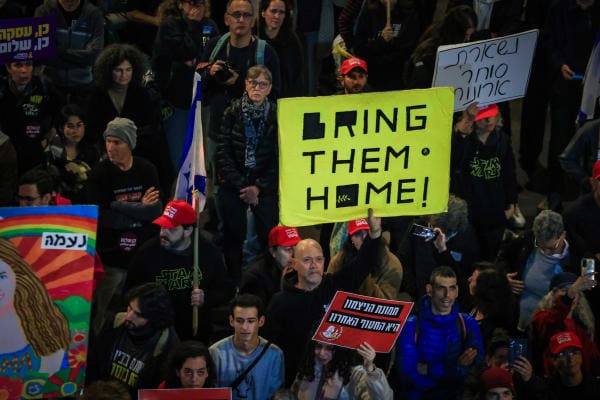Demonstrators protest against the Israeli government and for the release of Israelis held hostage in the Gaza Stripc outside Hakirya Base in Tel Aviv, January 11, 2025. Photo by Itai Ron/Flash90
With Israeli officials confirming negotiations over a ceasefire and hostage deal between Israel and Hamas have reached “advanced stages,” incoming U.S. President Donald Trump said he expects an announcement in the coming days.
Support authors and subscribe to content
This is premium stuff. Subscribe to read the entire article.
Login if you have purchased
